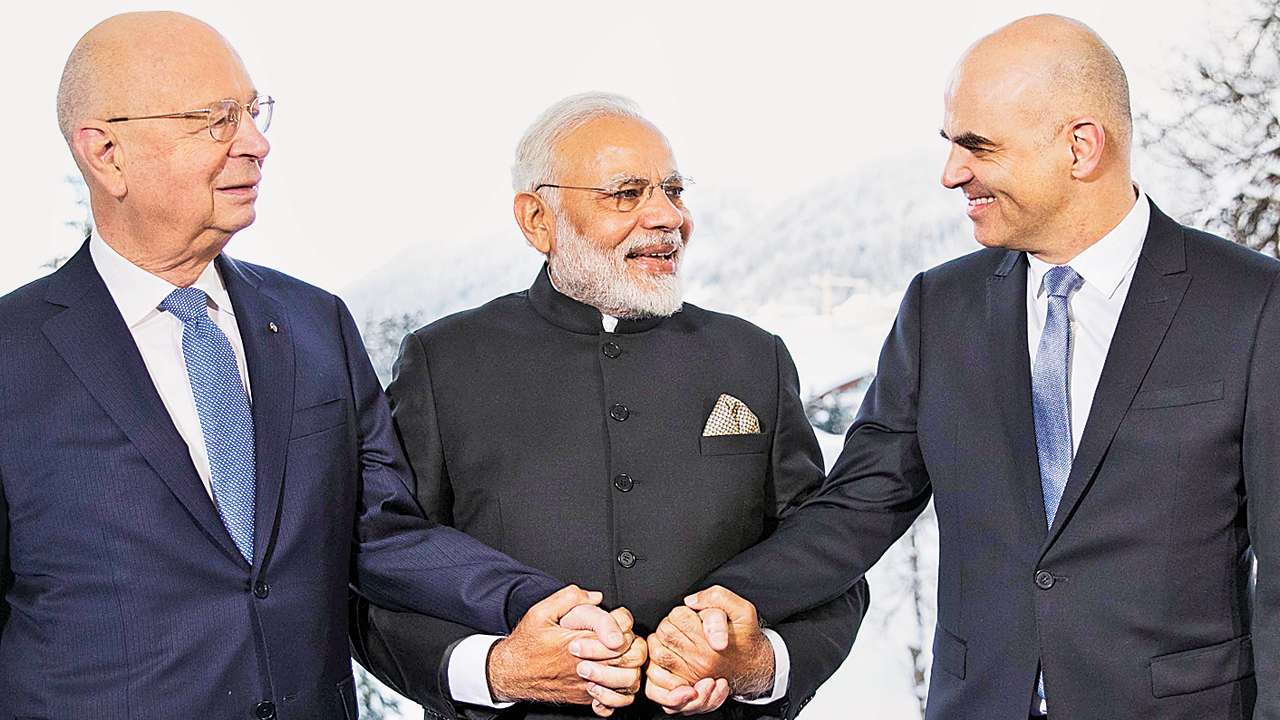
This year’s Republic Day celebrations come against the immediate backdrop of Prime Minister Narendra Modi’s speech at the World Economic Forum in Davos. The last time an Indian Prime Minister spoke at this annual gathering of the world’s movers and shakers at a Swiss ski resort was two decades ago.
India has changed immeasurably in these 20 years – socially, politically and economically. From a limping economy that almost crashed in the late-1980s and early-1990s, it is now among the fastest growing economies.
From a faltering and sputtering Soviet-style command and control system, it is now a quasi-market economy which, if reforms are not abandoned, will soon free itself of the shackles and legacies of the past.
With economic growth has come social development, possibly not at the desired speed, but it’s happening.
There has been a decline in real poverty levels and aspirations have largely replaced dependency on a nanny state’s handouts. The 2014 Lok Sabha election, resulting in a majority government not dependent on allies after three decades, and the subsequent expansion of the BJP’s footprint across the length and breadth of the country have changed politics forever.
If the UPA’s wasted decade was on account of an indecisive Prime Minister who was in office but not in power, India now has a decisive leader who wields authority and is in command of the government he heads. That India could ride over two huge disruptions – demonetisation of high-value currency notes and introduction of GST – bears testimony to this fact, apart from his charisma. No Prime Minister has had a constant approval rating as high as Modi’s in recent decades.
Modi calls it the ‘New India’. That may be a bit of a stretch because countries as big and diverse, as complicated and cluttered, as India take time to turn over and become an entity vastly different from what they were in the past. But India’s demography and the fact that it is a functioning democracy, that too the world’s largest, give it an edge over others, especially China.
And this is where Modi scored at Davos by letting his audience know that unlike China, they would be dealing with a rule-based, law-abiding democracy mindful of its obligations to the liberal order were they to evince interest in India. An Indian Prime Minister may have said the same thing in the past to a world audience, but that claim did not carry the heft it does now.
The three challenges highlighted by Modi at Davos were as much to flag them for his audience as to inform them where India stands on each of these issues. This not only adds to clarity while thinking India, it also serves to let Indians know how to negotiate and chart their future. Modi spoke in Hindi to make a larger point – that an Indian language deserves space on a global platform. But it also enabled him to communicate with Indians back home, to share his ideas with them.
At first glance these challenges – globalisation, terrorism and climate change – may not appear interlinked. But they are. A connected world cannot afford the protectionism of those very countries which demand and preach that barriers put up by others must disappear. President Donald Trump’s “America First” slogan is unexceptionable. After all, every country must protect its national interest. Modi too believes in “India First”.
There is an inherent danger that in this jostle for who is first, new barriers will be raised and globalisation will retreat, leading to exclusionary policies and a disruption that none can afford. That would be disastrous, including for America.
Economies grow individually and collectively when there are fewer distractions. Today, one of the biggest distractions is the rise of trans-border terrorism leading to depletion of state resources and a constant state of asymmetric war within, without and among nations. Short-sighted geostrategies and flawed geopolitics of labelling terrorists as ‘good terrorists’ and ‘bad terrorists’ can only rebound. The blowback is felt both by indulgent states and states that stand up to terror. This is common wisdom, yet it is not reflected in the global response to terrorism.
Similarly, climate change threatens disruption on a gargantuan scale by way of decimating poor economies, triggering mass migration, and reversing the post-globalisation gains. The rich understand this but are unwilling to help the poor. The developed world can share both technology and resources with the developing world but won’t. You did it, you clean it may sound a righteous approach, but it will only lead to adding to the woes of those who refuse to help.
A confident India is open for business. That’s the biggest message this Republic Day. In the end, what matters most is a nation’s economy and its economic clout. Everything else is pretty icing on the cake. Modi has stated his vision of making India a $5 trillion economy by 2025. It is now for Indians to fulfil that vision. This is the moment. Seize it.
The author is a political commentator. Views expressed are personal.